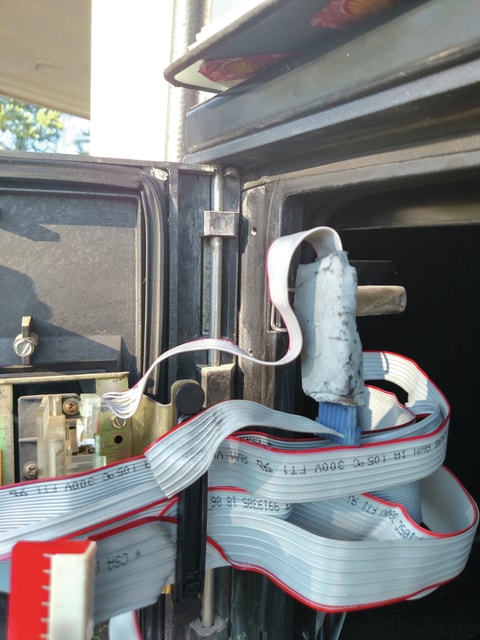
By Anna DeWine
XENIA — In a two-day “Skimmer Sweep,” inspectors found four illegal credit card skimmers in gas stations across the state, including one in Beavercreek.
Credit card skimmers are devices used to steal credit card numbers, debit card numbers and PINs for the purpose of identity theft. The devices are often equipped with Bluetooth technology, allowing thieves to access private information from up to 100 yards away.
The skimming device found in Beavercreek Friday morning is the county’s first. Greene County Auditor David Graham wasn’t surprised at the find.
“I figured it was only a matter of time before one was found in Greene County,” he said.
But at the end of the day, he felt positive that there was only one.
This count adds to the previous 30 skimmers found in 12 counties in Ohio since October, most in southwest Ohio and along I-75.
Graham joined 60 other county auditors on Thursday to launch the skimmer sweep, an effort to protect unsuspecting holiday travelers from identity theft over the Labor Day weekend.
More than 80 weights and measures inspectors planned to visit more than 1,500 gas stations and check at least 12,000 pumps over the two-day period.
Once a year, the weights and measures department in Greene County — a department of one person — visits the county’s 53 gas stations and tests each pump to ensure it gives the amount of gas that has been purchased. The process also includes a safety inspection, which involves checking for leaking hoses and now for skimmers.
But as Graham explained, a problem still remains.
“Our inspection is only good for the moment of the inspection,” he said. “Two hours after we leave someone could break into the pump and place a skimmer in it.” The only way the problem can be truly addressed, Graham said, is through the station owners.
“Station owners need to be more diligent in their efforts to protect the consumers,” he said.
Steps station owners can take to protect consumers include using security tape over the card reading device compartment, changing the locks on the pumps, and training staff to inspect the pumps for skimmers each day prior to opening. Some gas stations install pumps that deactivate when they are opened and can only be reactivated by management or the service company.
Consumers, too, can be proactive in preventing themselves from falling victim to crime. Graham advises consumers to be alert when refueling, and to report anything that seems out of place or tampered with. Paying for gas with cash is the safest option, even inside the station. Customers who pay with a card should use credit cards rather than debit cards to avoid the risk of stolen PINs. Customers should also always review their bank and credit card statements for fraudulent charges.
As gas stations switch to credit card chip readers, Graham hopes the skimmer craze will slow down. He plans for skimmer sweeps, though, to continue into the future.


